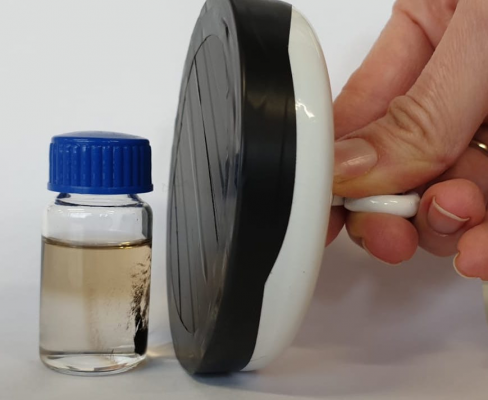Hyperthermia treatment
Pancreatic cancer treatment based on magnetic nanoparticles and alternating magnetic field
The most common treatment for pancreatic cancer consists in the systematic administration of chemotherapy whose severe adverse effects are well known. Thus, there is a dire need for developing new therapies for local cancer treatment. The treatment with heat (hyperthermia) has raised much interest in clinical practice while some challenges, including uniform heat generation in the desired area and developing precise and non-invasive thermometry solutions, still remain.
The clinical therapy based on magnetic particle heating is commonly known as magnetic fluid hyperthermia (MFH) or magnetic hyperthermia (MHT). TBMED partners UNIZAR and nB have shown that magnetic nanoparticles (MNPs) can be used as heat mediators for the localized treatment of cancer in in vitro and in vivo experiments. This promising therapy allows generating heat in a controlled way through remote activation using an external alternating magnetic field (AMF) applicator.
Development in TBMED using potential OITB services
For MNPs, the current production route has been identified as key issue to validate the manufacturing process to regulatory requirements. Thus, a new manufacturing process using more reproducible and easily scalable MNPs will be developed using the QbD approach. Furthermore, in vivo efficacy studies will be carried out. Once the safety and efficacy is well demonstrated, pre-clinical testing will start.
For the AMF medical applicator, currently a mid-size prototype is being assembled and tested with the target of facilitating preclinical experiments and as a prior stage to the final design and prototyping of a human clinical device to be presented at the end of the project.
